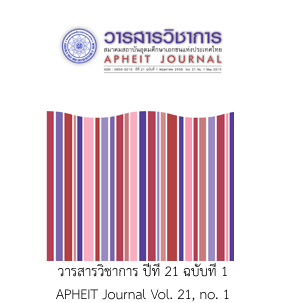Migration and Well-being of Migrants : A Comparative Study of Thai and Cambodian Migrant Workers
Main Article Content
Abstract
This research had the following three objectives: (1) To study the motivation and patterns of migration of Thai and Cambodian migrant workers, (2) To study the well-being of Thai migrant workers in comparison with their Cambodian counterparts; and (3) To study the migrant workers perceptions of the meaning of the term “well-being” in their own context. This research hypothesized that the migrant workers would have a greater level of well-being after migrating than before, and that Thai migrant workers would have a greater level of well-being than the Cambodian migrant workers since the Thai migration is domestic, thus requiring less adaptation, and the Thai migrant workers would experience less prejudice from local residents compared to non-Thai migrant workers. This was a qualitative research study which used in-depth interviews to collect information from 18 key informants, including seven Thai migrant workers, nine Cambodian migrant workers, and two Thai employers of Cambodian migrant workers. The data were analyzed in accordance with interpretive sociology and phenomenology principles. This study found that both Thai and Cambodian migrant workers were seeking better work conditions and moved in a circular migration pattern. Overall well-being was greater as a consequence of the migration, and Cambodian migrant workers gave a higher self-assessment rating for their well-being than their Thai counterparts. Both groups of migrant workers gave highest priority to family happiness. It is recommended that in order to improve their well-being, both the employers and migrant workers should be encouraged to increase the skills of these workers so that they can move to a higher-paid employment.

